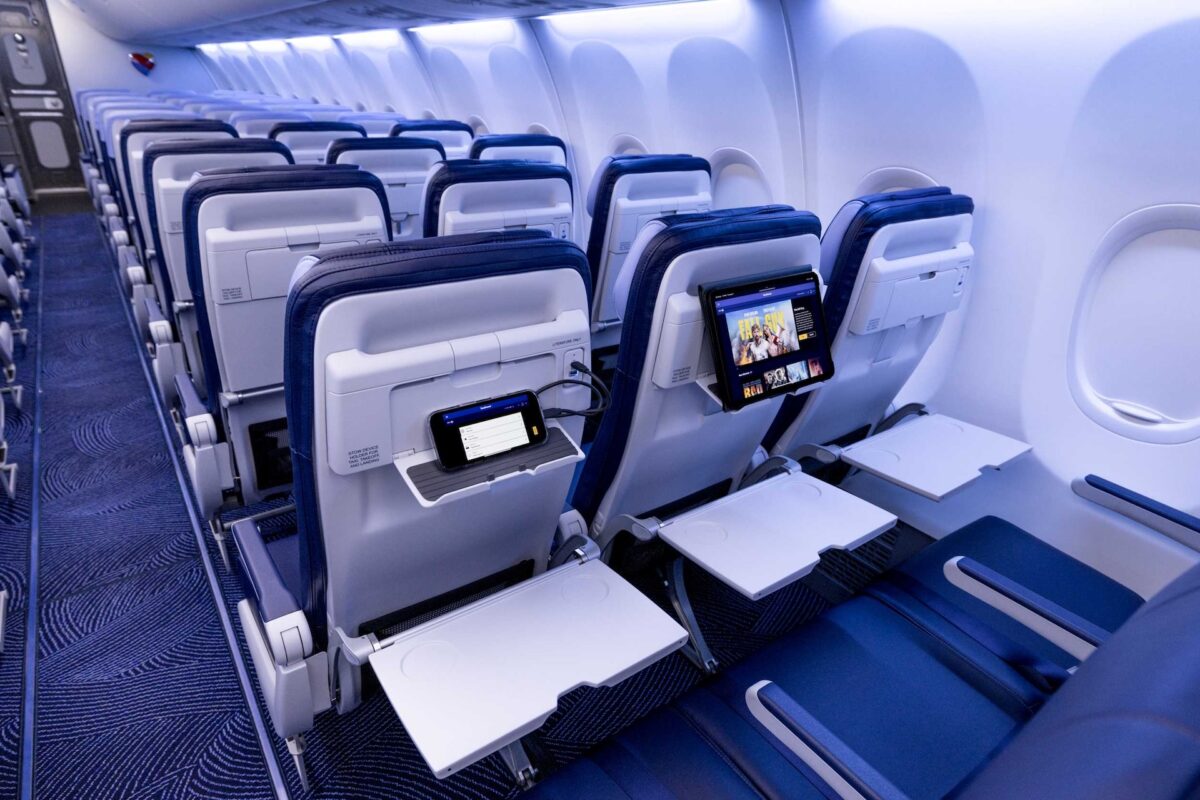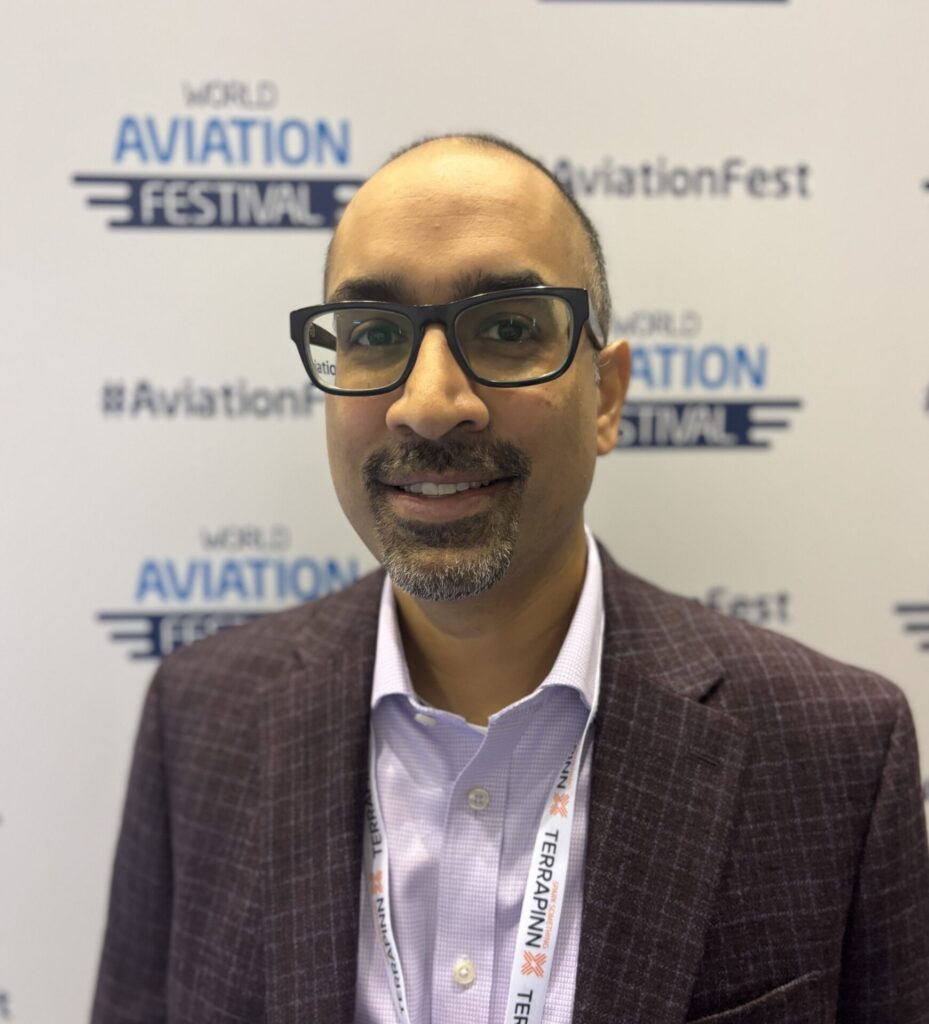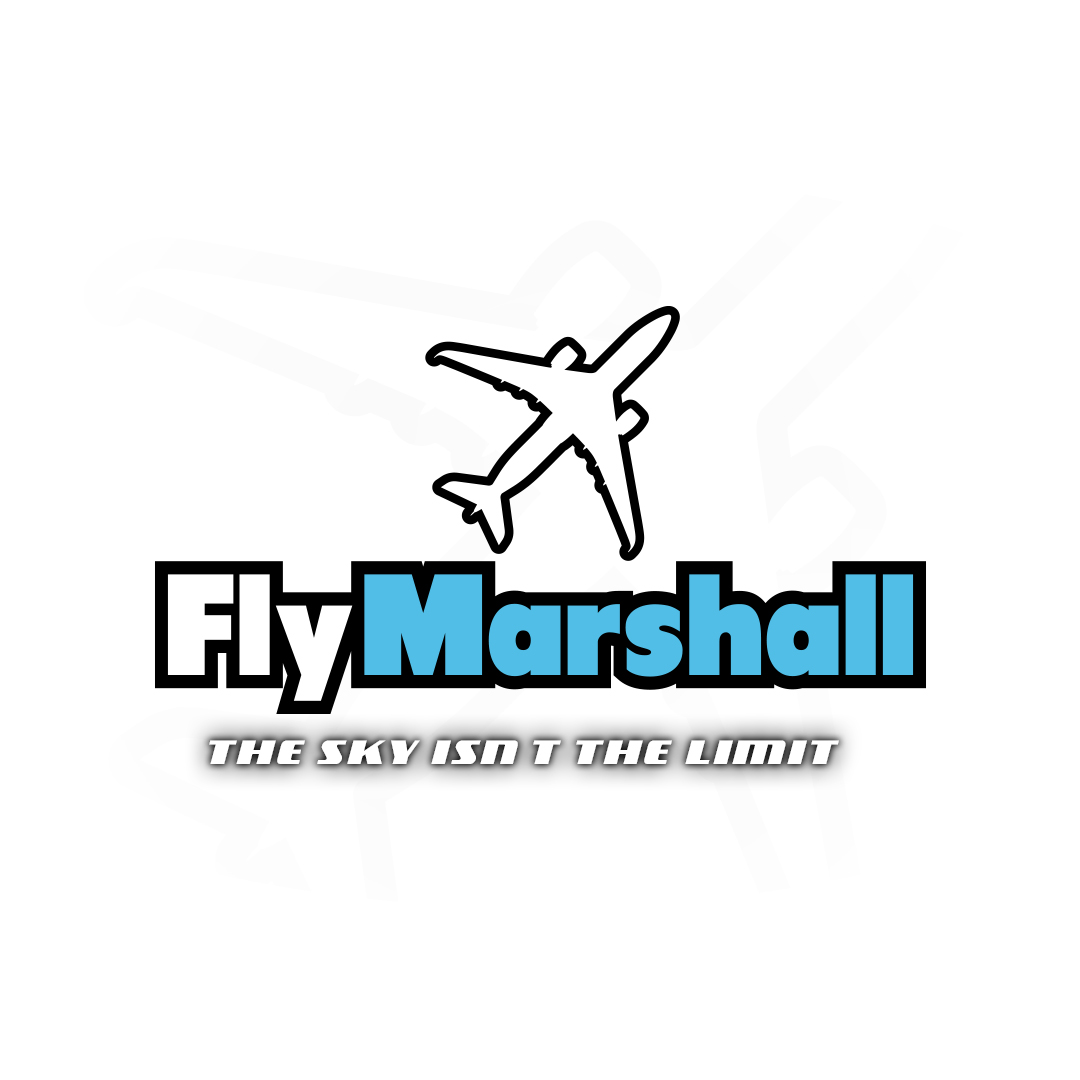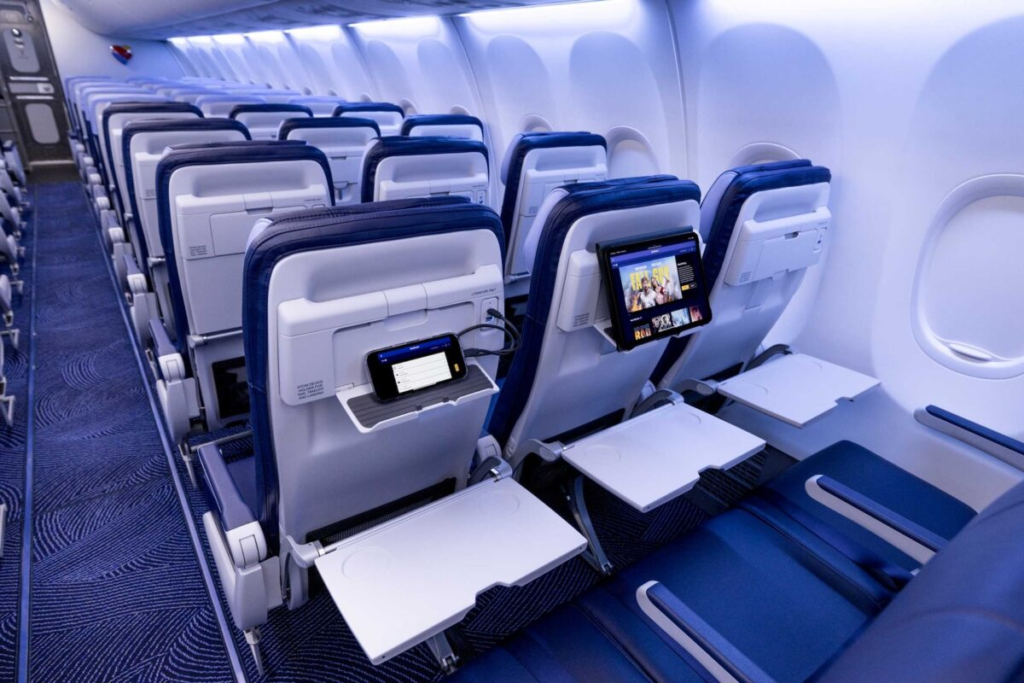Southwest Airlines continues to push forward with its comprehensive transformation plan, unveiling two significant initiatives on October 15, 2025, both aimed at enhancing passenger experience and boosting profitability.
For the first time, the low-cost carrier showcased the redesigned cabin interiors for the Boeing 737 MAX fleet. This cabin revamp was first announced in February 2024 and will be applied to all factory-new B737 MAX aircraft that join the fleet moving forward.
The first aircraft to be fitted with this new 175-seat configuration is a Boeing 737 MAX 8 (registration N8972S) which will enter service on October 16, 2025.
Blue tones dominate the new cabin, which is fitted with RECARO R2 slim seats. The rows at the front of the aircraft are Extra Legroom (ELR) seats and are identified as such through a slight design difference in the seat cover patterns, which subtly feature a lighter color on their top section.
These seats do not have embedded screens but feature personal device holders and USB-A and USB-C power outlets. Southwest will also offer Viasat-provided Wi-Fi connectivity onboard its new MAX aircraft.

According to data from ch-aviation, as of October 16, 2025, Southwest Airlines has 274 new Boeing 737 MAX 7 and 197 MAX 8 aircraft on order.
These product upgrades are part of Southwest’s quest to boost its profitability as it faces heightened scrutiny from activist investors such as Elliott. This also includes making significant investments in its technological and revenue management infrastructure.
Betting on re-commerce technology to boost revenue
On the same day that it showcased the new cabins, the airline also announced a partnership with Volantio, a technology firm specializing in post-sale revenue optimization.
Volantio has developed a system that allows airlines to analyze large amounts of data, to identify flights that will be in high demand and likely to command higher prices. This gives the airline the chance to proactively reach out to customers that already hold tickets on those flights and offer them money to buy them back before later reselling them at a higher price.
Key to this concept is the fact that all ticket claim-backs are executed on a voluntary basis after the passenger has accepted a monetary offer to sell its ticket back to the airline.
A closer look at the ticket resale technology
AeroTime met with Volantio’s co-founder and CEO, Azim Barodawala at World Aviation Festival, a major airline tech show which took place in Lisbon, Portugal, October 7-9, 2025, to learn more about this technology.

“Our business is built on a single premise, which is the people travelers are more flexible than anyone thinks they are,” Barodawala explained.
His team conducted research polling a sample of more than 2,000 people across nine countries, globally, age and income adjusted, and found that 87% expressed some degree of flexibility to change their travel plans (provided they were properly compensated).
Barodawala also explained that Volantio is already working with carriers such as Alaska Airlines, JetBlue, Qantas, and IAG Group airlines and has also started to apply the same principles to Broadway shows.
“We’re not just talking about aviation,” he said. “There are several trillion-dollar industries globally, from sea freight to live events, that have three common characteristics: constrained supply, volatile demand, and perishable inventory. We’re starting with aviation, but I think there’s a lot of value outside of that as well.”


